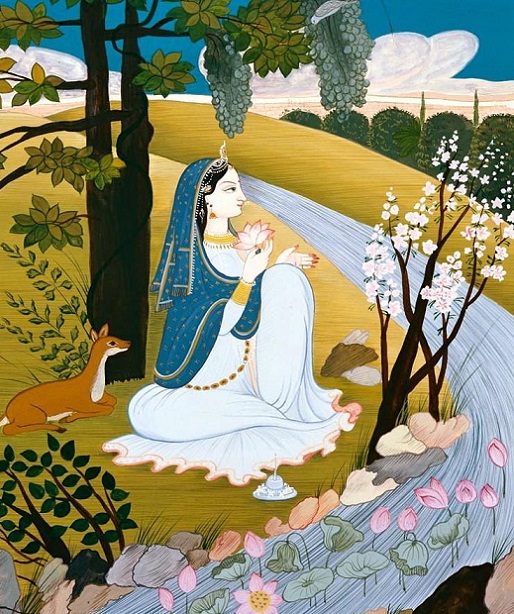(The saintly Queen Kunti who endured unimaginable tragedies, yet kept her faith in Krishna)
I wish that all those calamities would happen again and again so that we could see You again and again, for seeing You means that we will no longer see repeated births and deaths.
PURPORT
Generally, the distressed, the needy, the intelligent, and the inquisitive who have performed some pious activities worship or begin to worship the Lord. Others, who are thriving on misdeeds only, regardless of status, cannot approach the Supreme due to being misled by the illusory energy. Therefore, for a pious person, if there is some calamity there is no other alternative than to take shelter of the lotus feet of the Lord. Constantly remembering the lotus feet of the Lord means preparing for liberation from birth and death. Therefore, even though there are so-called calamities, they are welcome because they give us an opportunity to remember the Lord, which means liberation.
One who has taken shelter of the lotus feet of the Lord, which are accepted as the most suitable boat for crossing the ocean of nescience, can achieve liberation as easily as one leaps over the holes made by the hooves of a calf. Such persons are meant to reside in the abode of the Lord, and they have nothing to do with a place where there is danger in every step.
This material world is certified by the Lord in the Bhagavad-gītā as a dangerous place full of calamities. Less intelligent persons prepare plans to adjust to those calamities, without knowing that the nature of this place is to be full of calamities. They have no information of the abode of the Lord, which is full of bliss and without trace of calamity. The duty of the sane person, therefore, is to be undisturbed by worldly calamities, which are sure to happen in all circumstances. Suffering all sorts of unavoidable misfortunes, one should make progress in spiritual realization, because that is the mission of human life. The spirit soul is transcendental to all material calamities; therefore, the so-called calamities are called false. A man may see a tiger swallowing him in a dream, and he may cry for this calamity. Actually there is no tiger and there is no suffering; it is simply a case of dreams. In the same way, all calamities of life are said to be dreams. If someone is lucky enough to get in contact with the Lord by devotional service, it is all gain. Contact with the Lord by any one of the nine devotional services is always a forward step on the path going back to Godhead.
In this very interesting verse, it is described that vipadaḥ—calamities or dangers—are very good if such dangers and calamities remind us of Kṛṣṇa.
tat te ’nukampāṁ susamīkṣamāṇo
bhuñjāna evātma-kṛtaṁ vipākam
(SB 10.14.8)
How does a devotee receive dangers? There must be dangers because this material world is full of dangers. But foolish people who do not know this try to avoid the dangers. Thus they struggle for existence. Everyone is trying to become happy and avoid danger. This is our material business. Everyone is trying for ātyantikaṁ sukham, ultimate happiness. A working man thinks, "Let me work very hard now and put money in the bank, so that when I get old I shall enjoy life without working." This is the inner intention of everyone. No one wants to work; as soon as one gets some money, he wants to retire from work and become happy. But that is not possible. One cannot become happy in that way.
Here Kuntīdevī speaks of apunar bhava-darśanam. The prefix a means "not," and punar bhava means "repetition of birth and death." The real danger is the repetition of birth and death. That must be stopped.
The material world is full of dangers (padaṁ padaṁ yad vipadām). For example, if one is on the ocean one may have a very strong ship, but that ship can never be safe; because one is at sea, at any time there may be dangers. The Titanic was safe, but on its first voyage it sank, and many important men lost their lives. So danger there must be, because we are in a dangerous position. This material world itself is dangerous. Therefore, our business now should be to cross over this sea of danger as soon as possible. As long as we are at sea, we are in a dangerous position, however strong our ship may be. That’s a fact. But we should not be disturbed by the sea waves; instead, we should just try to cross over the sea and get to the other side. That should be our business.
As long as we are in this material world, there must be calamities because this is the place of calamity. But even with calamities our business should be to develop our Kṛṣṇa consciousness, so that after giving up this body we may go back home, back to Kṛṣṇa.
(Teachings of Queen Kunti, Chapter 8)
.
